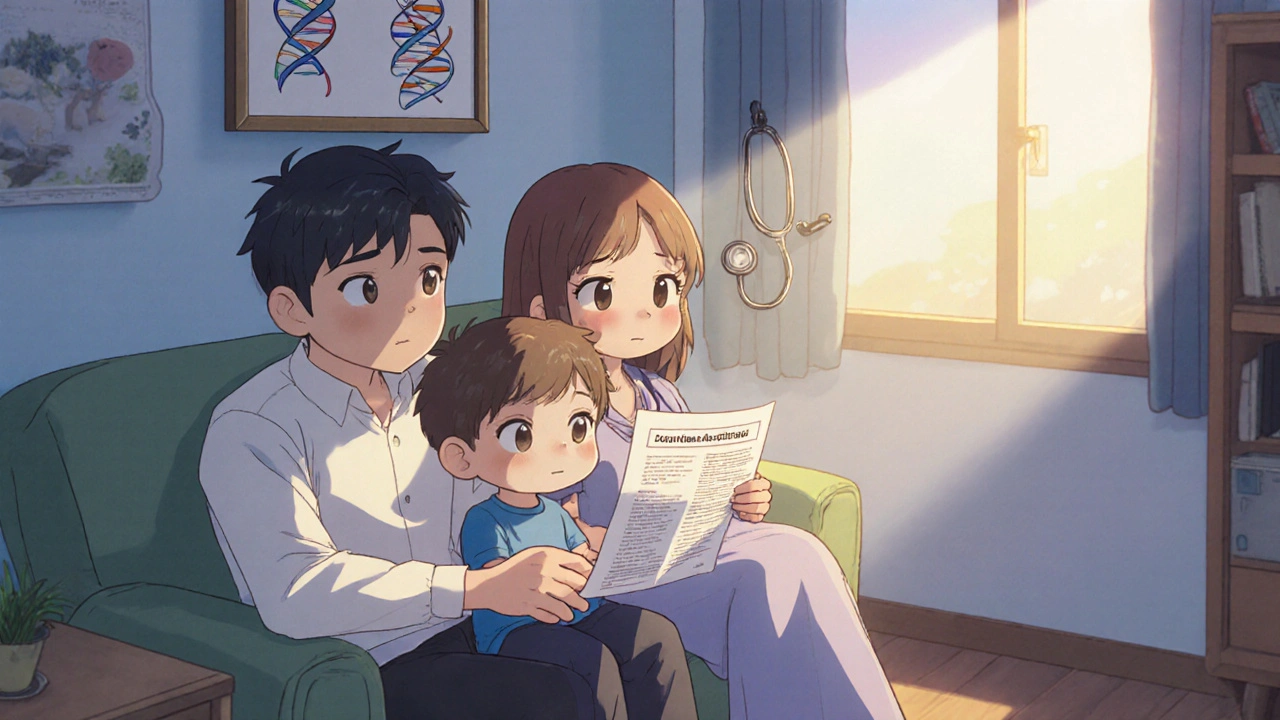Duchenne Muscular Dystrophy: What You Need to Know
If you’ve heard the term Duchenne Muscular Dystrophy (DMD) and wondered what it really means, you’re in the right place. DMD is a genetic muscle disease that mainly affects boys, causing muscles to get weaker over time. It’s caused by a missing or faulty dystrophin gene, which makes it hard for muscle cells to stay strong.
Because it’s inherited, families often notice a pattern. The gene is on the X‑chromosome, which is why girls usually are carriers and boys develop the full disease. If a mother carries the mutation, each son has a 50 % chance of getting DMD.
Symptoms and Early Signs
Most kids with DMD start showing signs before turning five. Look for trouble climbing stairs, frequent falls, or an unusual waddling walk. You might also see delayed motor milestones—like sitting up or crawling later than peers.
Another red flag is a Gowers’ maneuver: the child uses hands to "walk up" their own legs when standing from the floor. This happens because the thigh muscles are too weak to lift the body on their own.
As the disease progresses, muscle loss spreads to the arms, torso, and eventually the heart and breathing muscles. By the early teens, many kids need a wheelchair.
Living with DMD
Managing DMD is a team effort. Pediatric neurologists, cardiologists, physiotherapists, and respiratory therapists all play a role. Early and regular physiotherapy helps keep joints flexible and reduces contractures. Stretching, low‑impact swimming, and assisted biking are common choices.
Heart health is a big focus because the heart muscle is also affected. Doctors often start medication—like ACE inhibitors or beta‑blockers—around age 10 to keep the heart working well.
Breathing support becomes important in the late teens. Non‑invasive ventilation (a mask that helps with breathing) can improve quality of life and extend survival.
On the treatment front, steroid therapy (usually prednisone or deflazacort) slows muscle loss and helps kids stay stronger for longer. Newer options, such as exon‑skipping drugs (eteplirsen, golodirsen) and gene‑replacement trials, are giving families more hope.
Every family also needs practical help. Schools can provide accommodations—like extra time for moving between classes or adaptive equipment. Support groups, both online and in‑person, let families share tips and emotional support.
Finally, keeping an eye on mental health matters. Kids with DMD can feel isolated or frustrated as they lose independence. Counseling, peer groups, and recreational activities adapted to their abilities can boost confidence.
While DMD is a serious, lifelong condition, the right combination of medical care, therapy, and community support makes a real difference. Staying informed, acting early, and leaning on specialists are the best ways to give a child with DMD a fuller, richer life.

How Duchenne Muscular Dystrophy Shapes Sibling Relationships and Family Life
Explore how Duchenne Muscular Dystrophy affects siblings and reshapes family dynamics, with practical coping tips, professional resources, and a handy support table.

How to Support Duchenne Muscular Dystrophy Awareness Month: Events, Hashtags & Donation Ideas
September is Duchenne Muscular Dystrophy (DMD) Awareness Month. Discover top events, hashtags, and donation tips to truly drive community support and DMD research.